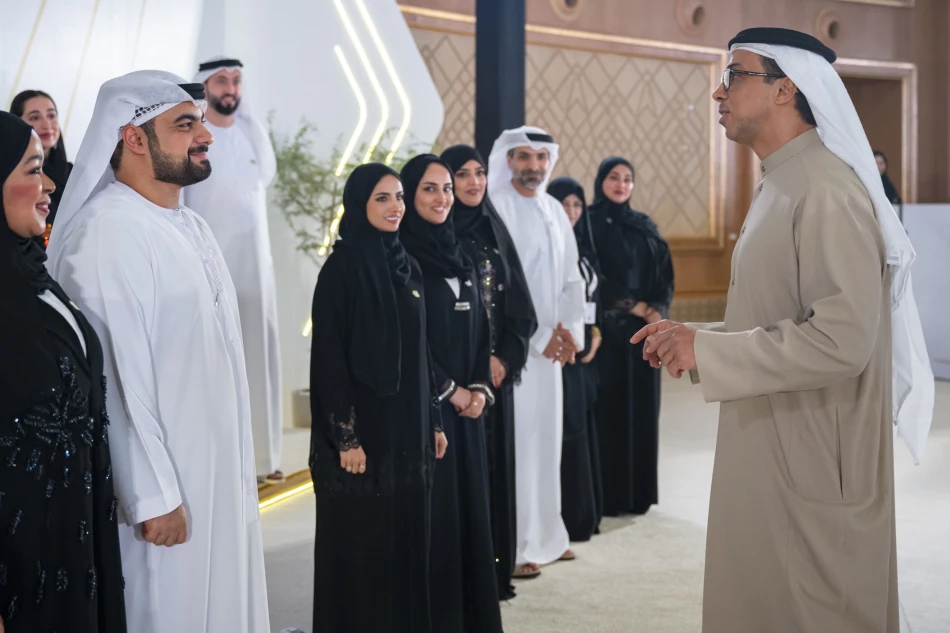
Emirati Talent Competitiveness Council Convenes, Honors 'Nafees' Award Winners
The UAE has reached a major milestone in its push to get more citizens working in private companies. After four years of the "Nafis" program, nearly 154,000 Emiratis now work in the private sector - with over 136,000 joining since the program launched. About 30,000 companies now employ Emirati citizens, showing how the country's workforce strategy is paying off.
Sheikh Mansour bin Zayed Al Nahyan, UAE Deputy President and Deputy Prime Minister, led a board meeting for the Emirates Competitiveness Council today at Qasr Al Watan in Abu Dhabi. The council approved strategic indicators for 2026 and signed off on a new strategic plan to keep pushing Emirati talent into private sector jobs.
"The Nafis program proves that investing in national talent is our real bet for boosting the country's competitiveness regionally and globally," Sheikh Mansour said. He emphasized that four years of continuous work have shown this approach works.
The numbers tell the story. When the UAE launched Nafis, the goal was simple: get more citizens working outside the traditional government sector. Private sector jobs typically offer different skills, international exposure, and help diversify the economy away from oil dependence. For a country preparing for a post-oil future, having citizens skilled in private business matters.
Sheikh Mansour made it clear this isn't just about jobs - it's about building a knowledge-based economy. "National talent will remain at the heart of our priorities, supported by quality programs designed according to labor market requirements," he said. The new strategy will focus on creating flexible and innovative work environments.
During the ceremony, 33 Emiratis won awards across 11 categories, including leadership roles, medical positions, banking and finance jobs, insurance work, and future-focused careers. The categories span from administrative and engineering roles to retail and customer service positions.
But the recognition wasn't just for individuals. Fifty-four companies got awards for supporting Emiratization across 13 key sectors. These include business services, manufacturing, trade, real estate, healthcare, hospitality, education, and information technology. Banking, finance, and insurance companies also made the list.
Here's why this matters beyond the UAE. Other Gulf countries face similar challenges - large expatriate workforces and the need to prepare citizens for economic diversification. Saudi Arabia has its Saudization program, while other regional economies watch these experiments closely. Success here could influence workforce policies across the region.
For businesses operating in the UAE, the message is clear: companies that actively hire and develop Emirati talent get recognition and likely preferential treatment in government contracts. The 30,000 companies now employing citizens represent a significant shift from just a few years ago.
The timing is important too. As global companies reassess their Middle East strategies and the UAE positions itself as a regional hub, having a skilled local workforce becomes more valuable. International businesses need local talent who understand both global markets and regional culture.
Sheikh Mansour highlighted something crucial: this isn't just about quotas or government pressure. Companies need to create attractive work environments where Emirati employees can actually develop skills and contribute effectively across different sectors.
The program's success rate suggests the UAE found a formula that works - combining government support with real market incentives. Instead of forcing hiring through regulations alone, they're making it worthwhile for both employers and employees.
Most Viewed News

 Sara Khaled
Sara Khaled






